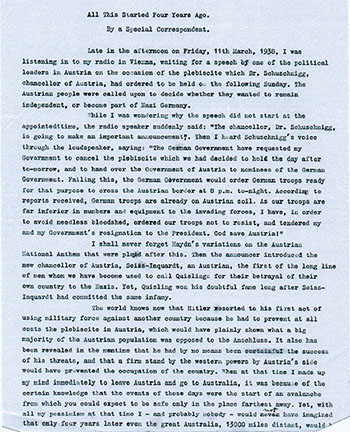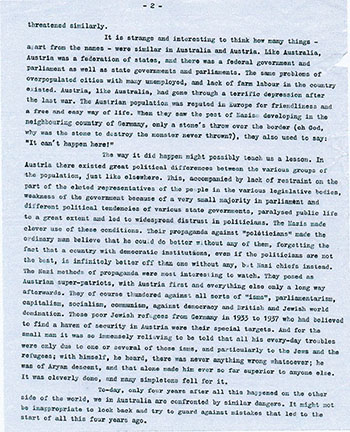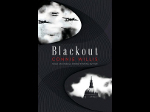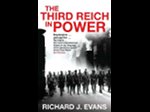All This Started Four Years Ago - By a Special Correspondent
This article by "A Special Correspondent" was in my grandfather's papers, along with other letters written at the time on what I believe is the same typewriter (something I'd love to be able to confirm). I haven't been able to find this text elsewhere so I am publishing it here.
Chilling given the recent resurgence of Nationalist rhetoric.


Late in the afternoon on Friday, 11th March, 1938, I was listening in to my radio in Vienna, waiting for a speech by one of the political leaders in Austria on the occasion of the plebiscite which Dr. Schuschnigg, chancellor of Austria, had ordered to be held on the following Sunday. The Austrian people were called upon to decide whether they wanted to remain independent, or become part of Nazi Germany.
While I was wondering why the speech did not start at the appointed time, the radio speaker suddenly said: "The chancellor, Dr. Schuschnigg, is going to make an important announcement. Then I heard Schuschnigg's voice through the loudspeaker, saying "The German Government have requested my Government to cancel the plebiscite which we had decided to hold the day after to-morrow, and to hand over the Government of Austria to nominees of the German Government. Failing this, the German Government would order German troops ready for that purpose to cross the Austrian border at 8 p.m. to-night. According to reports received, German troops are already on Austrian soil. As our troops are far inferior in numbers and equipment to the invading forces, I have, in order to avoid needless bloodshed, ordered our troops not to resist, and tendered my and my Government's resignation to the President. God save Austria!"
I shall never forget Haydn's variations on the Austrian National Anthem that were played after this. Then the announcer introduced the new chancellor of Austria, Seiss-Inquardt, an Austrian, the first of the long line of men whom we have become used to call Quislings for their betrayal of their own country to the Nazis. Yet, Quisling won his doubtful fame long after Seiss-Inquardt had committed the same infamy.
The world knows now that Hitler resorted to his first act of using military force against another country because he had to prevent at all costs the plebiscite in Austria, which would have plainly shown what a big majority of the Austrian population was opposed to the Anschluss. It also has been revealed in the meantime that he had by no means been certain of the success of his threats, and that a firm stand by the western powers by Austria's side would have prevented the occupation of the country. When at that time I made up my mind immediately to leave Austria and go to Australia, it was because of the certain knowledge that the events of those days were the start of an avalanche from which you could expect to be safe only in the place farthest away. Yet, with all my pessimism at that time I - and probably nobody - would not have imagined that only four years later even the great Australia, 13000 miles distant would be threatened similarly.
It is strange and interesting to think how many things - apart from the names - were similar in Australia and Austria. Like Australia, Austria was a federation of states, and there was a federal government and parliament as well as state governments and parliaments. The same problems of overpopulated cities with many unemployed, and lack of farm labour in the country existed. Austria, like Australia, had gone through a terrific depression after the last war. The Austrian population was reputed in Europe for friendliness and a free and easy way of life. When they saw the pest of Nazism developing in the neighbouring country of Germany, on a stone's throw over the border (oh God, why the stone to destroy the monster never thrown?), they also used to say: "It can't happen here!"
The way it did happen might possibly teach us a lesson. In Austria there existed great political differences between the various groups of the population, just like elsewhere. This, accompanied by lack of restraint on the part of the elected representatives of the people in the various legislative bodies, weakness of the government because of a very small majority in the parliament and different political tendencies of various state governments, paralysed public life to a great extend and led to widespread distrust in politicians. The Nazis made clever use of these conditions. Their propaganda against "politicians" made the ordinary man believe that he could do better without any of them, forgetting the fact that a country with democratic institutions, even if the politicians are not the best, is infinitely better of than one without any, but Nazi chiefs instead. The Nazi methods of propaganda were most interesting to watch. They posed as Austrian super-patriots, with Austria first and everything else only a long way afterwards The Nazi methods of propaganda were most interesting to watch. They posed as Austrian super-patriots, with Austria first and everything else only a long way afterwards. The of course thundered against all sorts of "isms", parliamentarism, capitalism, socialism, communism, against democracy and British and Jewish world domination. Those poor Jewish refugees from Germany in 1933 to 1937 who had believed to find a haven of security in Austria were their special targets. And for the small man it was so immensely relieving to be told that all his every-day troubles were only due to one or several of those isms, and particularly to the Jews and the refugees; with himself, he heard, there was never anything wrong whatsoever; he was of Aryan descent, and that alone made him ever so far superior to anyone else. It was cleverly done, and many simpletons fell for it.
To-day, only four years after all this happened on the other side of the world, we in Australia are confronted by similar dangers. It might not be inappropriate to look back and try to guard against mistakes that led to the start of all this four years ago.
Permalink - Comments - Tags: World War Two,Misc
Ardennes 1944: Hitler's Last Gamble - Antony Beevor

Unsurprisingly Beevor writes an in depth and human account of this tragic and ultimately futile offensive in the west.
Permalink - Comments - Tags: Books,Review,World War Two
Blackout - Connie Willis

It's funny I can suspend disbelief to allow time travel but not accept some other aspects of the story.
In 2060 someone hands someone else a sheaf of papers, the product of their 'research'. Really in 50 years we are going to be handing each other paper? I don't think so.
We have the ability to hardwire 'implants' into our brains, but those implants will be memory constrained? Feels contrived because it is.
A university educated historian doesn't know when Pearl Harbour happened.
Nobody really dies.
Historians are basically self obsessed, uninformed, amateurs with random, erratic theories on how their actions effect the course of history.
Didn't enjoy this book so much. I care so little about these characters that I am not going to bother with "All Clear" (the second half of this behemoth).
Permalink - Comments - Tags: Books,Review,World War Two
The Third Reich at War, 1939-1945 - Richard J. Evans

The warm simplicity of her [Ilse Weber] settings was never more moving than in her lullaby 'Viegela', which she reportedly sang to children from the camp, including her son Tommy, as she accompanied them voluntarily into the gas chamber at Auschwitz on 6 October 1944:
Viegala Viegala ville
Now is the world so still!
No sound disturbs the lovely peace
My little child, now go to sleep.
Permalink - Comments - Tags: Books,Review,World War Two
The Third Reich in Power, 1933-1939 - Richard J. Evans

Continuing the fascinating, horrifying story of the Nazi regime after it came to power. Moving on to the third volume with just a bit of trepidation.
This illustration of Jewish Germans realisation of their predicament after Kristallnacht violence of November 1938.
For many jews the shock of the pogrom was profound, destroying any last illusion they might have had that their patriotism, their war service, their skills, their education or even the fact that they were human beings would protect them from the Nazis.
and this quote describing the German/Soviet non aggression pact.
A formal alliance between two powers that had spent the previous six years mutually vilifying each other in public and had been the major backers of the two opposing sides of the Spanish civil war was unexpected to say the least.
Permalink - Comments - Tags: Books,Review,World War Two
[First Page] [Prev] Showing page 1 of 4 pages [Next] [Last Page]
 Mastadon
Mastadon Feeds
Feeds Contribute
Contribute